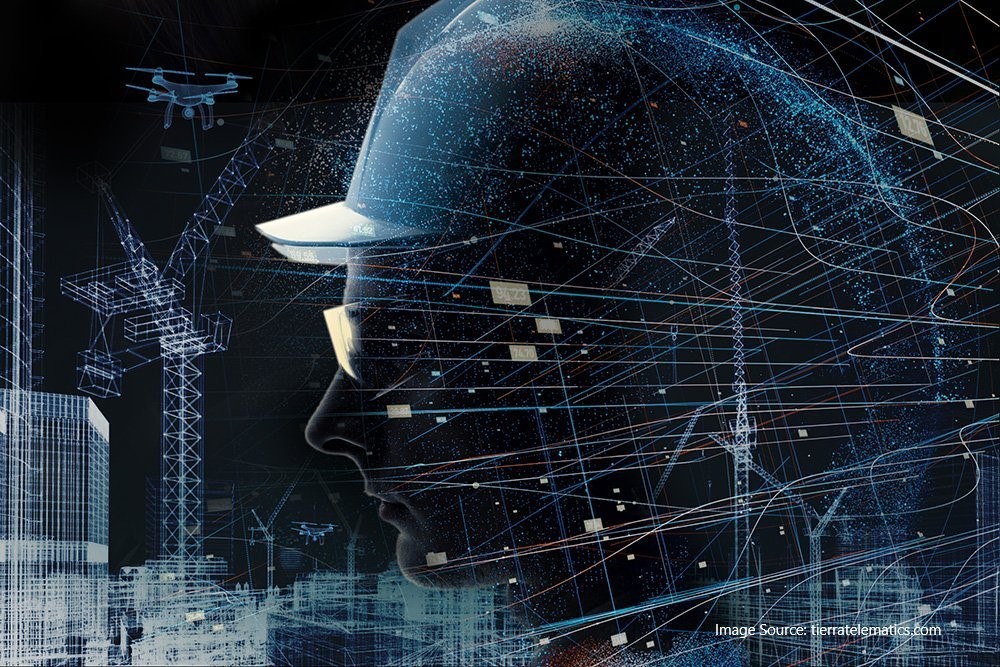
The construction industry is undergoing a transformative shift, driven by the advent of smart building technology. This revolution is not only enhancing the way buildings are constructed but also redefining the functionalities and efficiencies of the built environment. Smart building technology is setting new standards for sustainability, productivity, and user-centric design, profoundly impacting every facet of the construction process.
The Integration of Smart Technologies in Construction
Smart building technology encompasses a range of advanced systems and devices designed to automate and optimize building operations. The integration of these technologies starts right from the planning and design phase, extending through construction and into the operational lifecycle of the building. Key components include the Internet of Things (IoT), Building Information Modelling (BIM), artificial intelligence (AI), and advanced data analytics.
Key Technological Innovations in Construction
1. Building Information Modelling (BIM): BIM is a digital representation of the physical and functional characteristics of a building. It serves as a shared knowledge resource for information about a facility, forming a reliable basis for decision-making throughout its lifecycle. BIM facilitates better collaboration among stakeholders, reduces errors, and improves the efficiency of the construction process.
2. IoT and Sensor Technology: IoT devices and sensors are embedded in construction sites to monitor various parameters such as temperature, humidity, and structural integrity. These sensors provide real-time data that helps in optimizing resource usage, ensuring safety, and enhancing productivity. For instance, sensors can alert managers to equipment malfunctions or hazardous conditions, enabling prompt corrective actions.
3. Prefabrication and Modular Construction: Smart building technology supports prefabrication and modular construction methods. These approaches involve manufacturing building components in a controlled factory environment and then assembling them on-site. This not only accelerates the construction process but also improves quality control and reduces waste.
4. Drones and Robotics: Drones are used for site surveys, inspections, and monitoring progress, providing high-resolution images and real-time data. Robotics, on the other hand, are employed for tasks such as bricklaying, concrete dispensing, and material handling. These technologies enhance precision, reduce labor costs, and improve safety on construction sites.
5. AI and Machine Learning: AI and machine learning algorithms analyze vast amounts of data collected from construction sites to identify patterns and predict potential issues. These insights help in optimizing schedules, managing risks, and improving decision-making processes. AI-driven predictive maintenance ensures that machinery and equipment are serviced proactively, minimizing downtime.
Benefits of Smart Building Technology in Construction
1. Enhanced Efficiency and Productivity: Smart technologies streamline various aspects of the construction process, from planning and design to execution and maintenance. By automating routine tasks and optimizing resource allocation, these technologies significantly boost productivity and reduce project timelines.
2. Improved Quality and Precision: Technologies like BIM, robotics, and prefabrication ensure that buildings are constructed with a high degree of precision and consistency. This results in superior build quality and minimizes the likelihood of defects or rework.
3. Sustainability and Energy Efficiency: Smart building technology promotes sustainable construction practices. Efficient resource management, reduced waste, and the use of eco-friendly materials contribute to lower environmental impact. Additionally, smart buildings themselves are designed to be energy-efficient, further promoting sustainability.
4. Enhanced Safety: Safety is a paramount concern in construction, and smart technologies play a crucial role in mitigating risks. IoT sensors monitor site conditions in real-time, alerting workers to potential hazards. Drones and robotics also reduce the need for human presence in dangerous areas, enhancing overall site safety.
5. Cost Savings: While the initial investment in smart technologies may be substantial, the long-term cost savings are significant. Reduced labour costs, minimized waste, lower energy consumption, and enhanced operational efficiencies contribute to substantial financial benefits over the lifecycle of a building.
The Future of Smart Building Technology in Construction -The future of smart building technology in construction looks promising, with continuous advancements poised to bring even greater efficiencies and innovations. Emerging technologies such as 5G connectivity, augmented reality (AR), and virtual reality (VR) are expected to further transform the industry. 5G will enable faster and more reliable communication between devices, enhancing the functionality of IoT systems. AR and VR will revolutionize design, training, and project management, providing immersive and interactive experiences.
Furthermore, the integration of blockchain technology can enhance transparency and security in construction projects, ensuring that all transactions and communications are tamper-proof and verifiable. As these technologies evolve, the construction industry will witness unprecedented levels of innovation, making buildings smarter, safer, and more sustainable.
Smart building technology is reshaping the construction industry, driving it towards a future characterized by enhanced efficiency, sustainability, and user-centric design. By integrating advanced technologies such as BIM, IoT, AI, and robotics, the industry is overcoming traditional challenges and setting new benchmarks for quality and performance. As we continue to innovate and embrace these technological advancements, the construction industry will not only build better structures but also create smarter and more responsive environments that cater to the evolving needs of society.
Draftech – Your Project, Our Expertise.
Testimonials
Very professional and efficient organization. Delivered a great product to a tight deadline.
ACE Power
Karl and the team are very professional and have a vast knowledge of BIM coordination.
Dwayne Willaims Babinda Electrics
We had multiple large projects with tight deadlines and needed a company we could trust. The teams delivery, attention to detail and understanding of what is being designed is always executed to a high standard.
Martin O’Donovan Envar Engineers
Draftech offered a flexible and reliable approach to working collaboratively with our team. They met our expectations and quality requirements and also offered up new ideas.
Draftech have proven to be a valuable and trustworthy resource and we will continue to work with Draftech on other projects.
Simon Marsden Umow Lai
Draftech is different from others in the professionalism and features they provide.
The ability to walk through projects in real time online provides invaluable insight into problem areas and helps provide an efficient resolution on the spot without many phone calls, emails and the necessity for us to paw through countless drawings to understand the issues.
Todd Morris Manager - Air mech
Draftech were put forward to FIP Electrical as the solution to Coordinate, Model, carry out clash detection, provide Electrical Services Shop Drawings, as built documentation and completed electrical model.
Simon Thorpe FIP Electrical
In close collaboration Draftech set up all our systems and model deliverables. In this process Draftech have proven to be a valuable resource for us and demonstrated commitment, understanding and professionalism.
David Skelley DJCoalition
Draftech’s attention to detail and proactive nature throughout the project assisted us in identifying issues before becoming evident on site, saving us both time and unexpected costs.
Matt Payne PJM Engineering Services
They delivered very high quality Revit models and associated 2D documentation at key milestones, working to a tight budget and in strict accordance with the Architects’ BIM requirements.
Peter Thomas Geoff Hesford
We found Draftech’s work to be of high standard and the team delivered exactly as agreed, in fact, when we considered the project complete, Draftech put further resources into the project as they were not satisfied.
John Johnson Beca
Engaging Draftech during design gave us the tools to make smart decisions.
Hansen Yuncken Design Manager - Michael Harkins
The drafting service is timely, reliable and fit for purpose for the built environment.
Peter Harvey Harvey Industries
Draftech stands apart from other drafting services that we have previously used in their attention to detail and ability to adapt to the individual client’s requirements.
Doug Holt McCaig Aircon
I can confidently recommend Draftech as a solid and reliable supplier, and experts in their field. I look forward to working with them again in the near future.
Chris Behan Norman Disney & Young
After seeing the benefits Draftech provided us on the Townsville Hospital Redevelopment we have set up a relationship with Draftech and intend to continue to use their BIM knowledge and skills for our future projects.
Brad Lund Energy Power Systems
Draftech has no competition as they are in a class of their own.
John Boyes Babinda Electrics
Draftech Developments Drafting and Design Capabilities, in conjunction with their outstanding level of Client service and support has provided great solutions to our engineering and Drafting Design portions within our Gorgon Barrow Island Project.
Aaron Hazelton Applied Electro Systems Pty Ltd
Draftech set up necessary systems and workflows very quickly, but also setup auditable estimating and weekly cost tracking processes that we utilised, requiring little maintenance.
TOM PURDON MPM GROUP




























